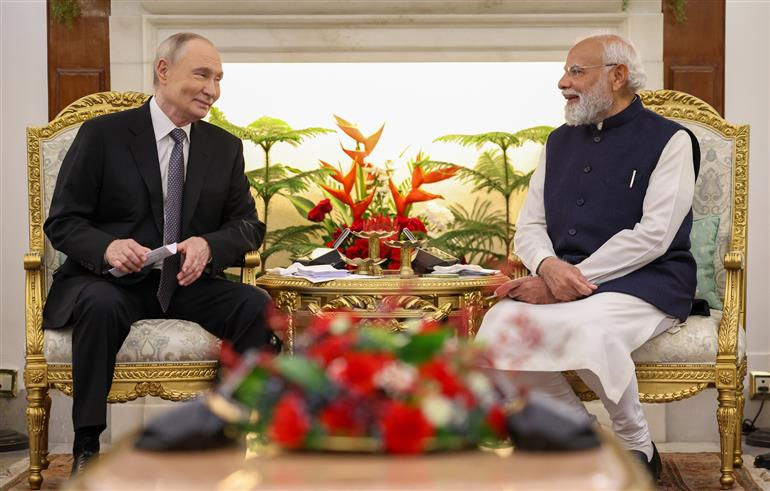Ukraine Crisis: Long Term Reputational Risk for India
- Security Risks Research
- Mar 17, 2022
- 3 min read

The Ukraine crisis for India has pitched the dilemma of choosing between principles – rule of international law, UN Charter, and supporting special strategic long time partner Russia.
The dilemma is attenuated as India is presently a non permanent member of the UN Security Council.
Thus, New Delhi must vote in the multiple resolutions that have been brought up by the Western block of democracies led by the United States whose proposals India may be inclined to support but has been forced to abstain due to the necessity for protecting Russia.
India has been progressively raising issues such
However there is now a clear reputational risk involved for New Delhi in continuing to hold hands with Russia. This facet has not received as much importance even as there has been extensive discussion on impact of sanctions on Russia on the economy, arms imports and so on.
As the United States has imposed multiple levels of sanctions which would have implications on India’s arms, energy and nuclear trade with India, a long term risk will be reputational.
While reputational risk[1] is measured mainly for multinational companies in international business, this can now be applied to countries.
That India faces a reputational risk by not siding with the democratic West is evident from the reactions in the United States to reports that India is contracting oil and gas from Russia at a 10 to 20 percent discount taking advantage of the fact that energy imports are not under sanctions.
White House spokesperson, Jen Psaki, reacting to the same said, “Our message to any country continues to be that, obviously, abide by the sanctions that we have put in place and recommended. I don’t believe this would be violating that. But also think about where you want to stand when the history books are written in this moment in time.” Psaki added that any “support for the Russian leadership” was “ support for an invasion that obviously is having a devastating impact”.
Importantly Amy Bera, the chair of the House of Representatives subcommittee on Asia, Pacific, Central Asia and non-proliferation, as a senior Indian-American member of the Congress expressed that he was “deeply disappointed” as India continued to abstain in the United Nations on resolutions condemning Russian aggression in Ukraine.
“Even worse, India is now reportedly looking to bypass international sanctions and buy Russian oil at a steeply discounted rate, potentially giving (Vladimir) Putin an economic lifeline at a time when the Russian economy is reeling from international sanctions,” Bera added. “As the world’s largest democracy, and as a leader of the Quad, India has a responsibility to ensure its actions do not directly or indirectly support Putin and his invasion,” he said.
On the other hand, India highlights the need for diplomacy and dialogue, with Prime Minister Mr Narendra Modi directly speaking to both Russian President Putin and Ukrainian president Volodymyr Zelensky, the former more than once during the ongoing crisis.
India has also provided humanitarian aid and assistance to Ukraine. However as the “war,” referred to as, “Special Military Operation,” by Russia drags on with more civilian casualties, India’s position will become increasingly untenable. While New Delhi is not likely to indirectly criticise Russia in the UNSC, many countries would be unhappy.
As India attempts to play a more significant role in global affairs – the fact that it could not take a clear stand on a critical issue as the Ukraine crisis may be hugely repelling from many. This may also impact India's support for permanent membership of the UN Security Council in the future.
[1] In the context of international business, one definition of reputational risk is a threat to the positive perception of a company or its products. See https://www.sciencedirect.com/topics/computer-science/reputational-risk



Comments